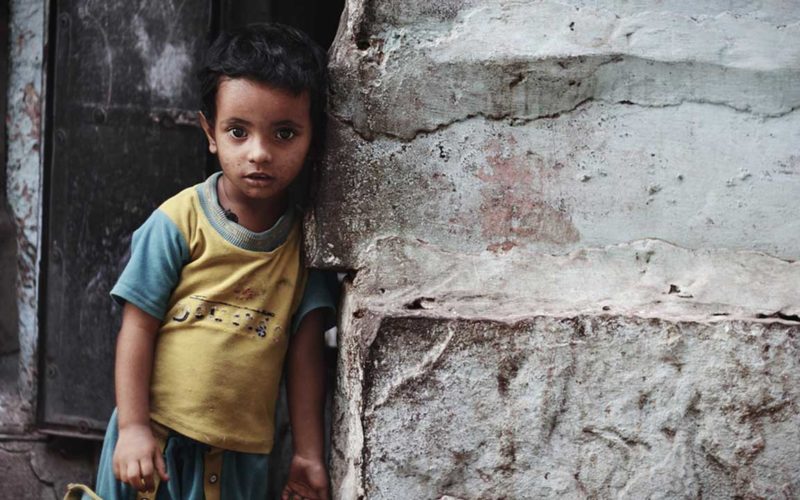- 2.2Kshares
- Share
- Tweet
- Facebook Messenger
As Indians, we have seen tough socio-economic conditions and often find ourselves belittling issues that do not seem relevant to us at the moment. Very conveniently, we use the powerful term, “first world problem“, hardly realizing that such tough-minded approach is actually counterproductive. There is no reason to dismiss an issue just because it does not entail questions of life and death.
Moreover, the “first world problems” that we speak of, are going to be our problems very soon if we hope India to be a superpower in the near future. It is understandable if you are not willing to take problems such as “My job is boring” or “the new shopping mall is ugly” seriously but here are some first world issues that are of sincere concern and most of them are catching on quite fast in India.
1. Rich countries are not as happy as we think they are

How would you like if you go to the gym for a year and find out that your body looks exactly the same as when you had started? Economist Richard Easterlin, in 1975, devised the “Happiness Scale” and measured the happiness level of the average US citizen to be 2.2.
In 2010, the happiness level was measured to be still 2.2 although, the per capita income in 1975 was $22,000 and in 2010 it was $54,000. There’s only an extent until which wealth matters as far as happiness is concerned.
2. Richer a country gets, the more stressed out its people get

It’s true that the United States is the most productive country in the world but it is also a fact that the country is the most stressed place to live. Recession, rise in service jobs and global competition has led to an average job tenure in rich countries to be mere fifteen months. People in the rich countries buy their wealth at a very high price and they work harder than a human ought to because they are simply afraid to lose their jobs. No wonder they’re stressed!
3. Buying a house gets next to impossible

As a country gets richer, everything else gets cheaper but a house, which is far more crucial than your smartphones and clothes. Capital cities of rich countries have seen house inflation rise by 20% in the recent years. It is already a distant dream for many of us to buy a house inside the heart of cities like Mumbai, Bangalore, Delhi or Calcutta and you can only imagine what it would be in the next few years. Good news for the homeowners, though!
4. People spend more time travelling and by travelling, we mean from home to work and back

The issues with house inflation carves the path for more problems, especially commuting time. With both your kidneys not worth a window of a house closer to your workplace, people spend hours just travelling to work from home and back on a daily basis, losing precious time that could be used to enjoy life. As the countries get richer, office goers travelling four hours a day packed like sardines in public transport will be more common a sight than it is now.
5. Loneliness creeps in whether you like it or not

About one-third of the US population is desperate for companionship and about four million people in France admit that they have no real friends. It is hardly possible for you to survive isolated in countries less developed but as countries get richer, people start moving away from family and friends. The family is no longer the economic unit and so you find yourself in a distant land, creating wealth and in exchange of loneliness.
6. People miss out on the finer aspects of life

There is not enough time to read books, appreciate art or even take exercise. An average American spends merely seven minutes a day with a book of their choice. 80% of people in the richest countries are too tired of taking the minimum recommended amount of 21 minutes of exercise.
Alcohol is apparently the leading relaxant and about a thousand pints of beer is consumed by an average man in the U.K in a year. 42% of online downloads are pornographic in rich countries and the rate of porn addiction is alarmingly high, which eventually leads to faults in relationships.
7. Relationships lose their bond, statistically speaking

Wealth creation seems to have a disastrous alignment with relationship problems in rich countries. The divorce rates in U.S.A is 53%, 55% in France and in Luxembourg, it is 60%.
However, the rate of divorce is not the only identifier of relationship problems in rich countries as there is always a large hinterland of the “unhappy un-divorced”. Recent studies show 70% of married couples in U.S.A leading extremely unhappy conjugal lives and fearing that a separation would be even worse.
8. The country becomes more plastic and less natural

About 4 billion people dwell in the urban areas and by 2050, it would be more than 6 billion. The next 50 years will see a voracious urban construction more than human history has ever witnessed.
You don’t have to be very smart to realize that this would only mean a rapid deterioration of the quality of the environment. Rich countries cannot help but tear up the natural habitats
only to turn them into soulless cities
9. Exhaustion sucks the life out of you

If you are stressed out because of work and also commuting inhuman hours a day, its only natural that you would be tired. Insomnia affects about 1/5th of the working population of Japan while 51% of the population in U.K complaint they do not get enough sleep. People are often too tired to even cook their meals leading to the growth of processed meal industry.
In U.K., the rise in the consumption of pre-made meals has been 6% a year which indicates that in 30 years, every single meal consumed in the U.K would be factory made.
If you think some of these problems are not just “first world”, it is because we’re catching up real soon.
- 2.2Kshares
- Share
- Tweet
- Facebook Messenger




